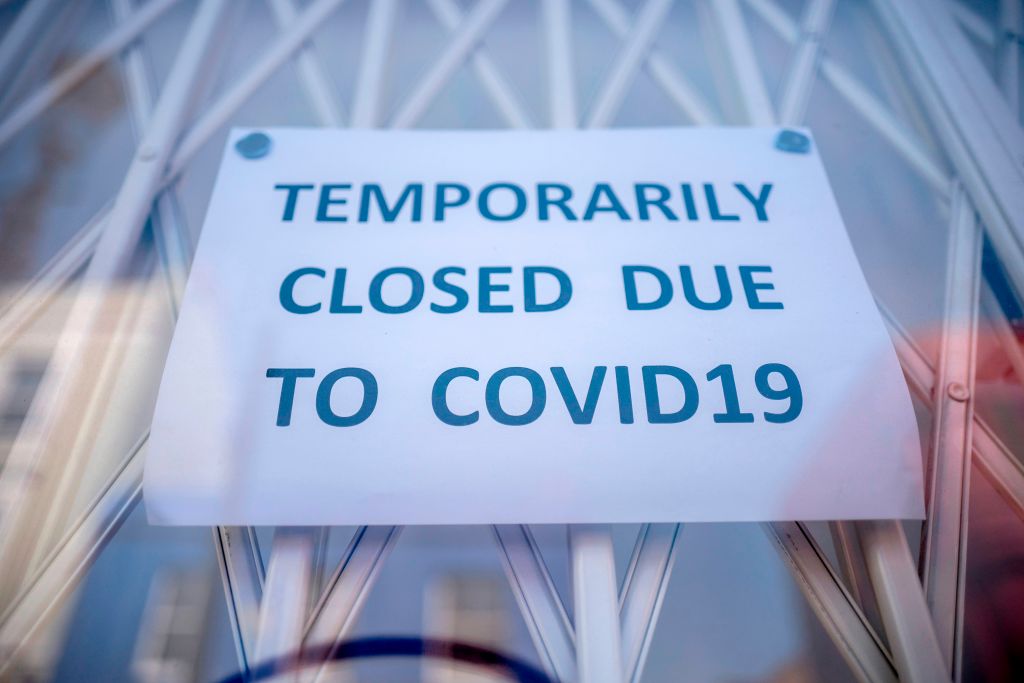The rapidity and willingness with which workers have adopted and adapted to remote working has led some – including Rory Sutherland in this week’s Spectator – to hail a home-working revolution. But there are convincing reasons why the office won’t be another Covid casualty.
First, while it is not inconceivable that coronavirus could accelerate the pre-existing home working trend for office workers, it is bordering on Panglossian to think that we could broaden this out to most people in Britain.
Recent research from the Institute of Economic Affairs has revealed that headline statistics on full-time home workers are misleading. The bulk of the 13.7 per cent of the labour force classified in this way are working from home rather than at home. Two-thirds of these people are self-employed and use their residence as an office base: they’re builders, plumbers, electricians, cleaners. They normally go out to serve clients and customers from this base, and could do virtually nothing under lockdown. Others live at their homes – farms, stables, or above pubs and shops. People spending all day in front of a computer then are a distinct minority.
Many home workers hold professional and managerial roles. They are disproportionately white and male, and tend to be homeowners. They are also more experienced: 40-59 year olds were more than twice as likely to be home workers as 20-29 year olds in 2018.
So the logic follows that those who cannot work remotely are often younger individuals, ones normally employed in hospitality or retail. Many in these groups are among the poorest: they may be on insecure or zero-hours contracts, with limited savings, living in cramped accommodation.
Second, as our economy wakes from state-induced coma we may discover there are drawbacks to distance working. Without employees working side-by-side, ideas can’t be shared so easily. Innovative firms, not least the tech start-ups that will be vital in boosting the recovery, will suffer because virtual tools are no substitute for the intellectual frisson of gathering smart people together. There is evidence that when employees work at a distance, they don’t extend themselves for the benefit of co-workers.
As for the anecdotal or ‘case study’ evidence of home working’s impact on productivity, it should be taken with a generous pinch of salt. One of the few sophisticated peer-reviewed reports on the effects of home working, which studied Chinese travel agent CTrip, revealed a 13 per cent increase in productivity among those staff members randomly assigned to work from home for a nine-month period.
However, the increase was driven by a rise in the number of minutes actually worked, as home workers took fewer breaks and sick days. And when given the choice to return to the office, many did, citing isolation during the trial period.
And so for every pro there is an equally compelling con. Home working will eradicate presenteeism, but risks blurring (even further) the lines between personal and professional life. We’ll miss out on the spillover effects of closer proximity, but young workers won’t be condemned to spending a third of their pay packets on astronomical rents. HS2 could be scrapped, sprinkling a welcome £100bn into the Treasury’s coffers. But the highly effective corporate cultures many innovative tech companies have cultivated will be put at risk.
Of course, as Rory Sutherland has written, those who can work from home should have the freedom to do so. I suspect many workers will now opt to work a day or two from home but that, as the C-Trip study revealed, these same workers will crave the company and team cohesion that goes hand-in-hand with office working. We’ve spent the last three months under lockdown: will the concept of home working really be as popular in the future as it has been in the past?






Comments